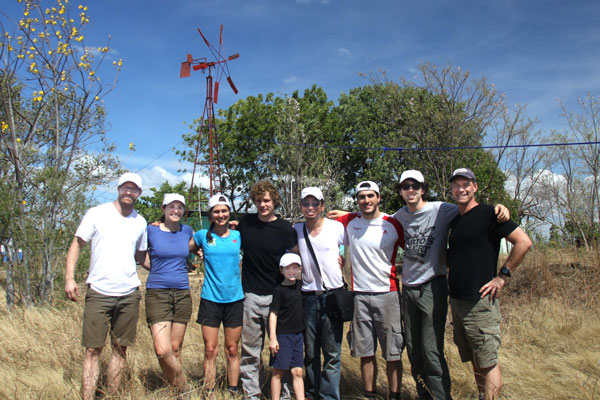
February 2, 2018 – For the last three years, Professor Amy Bilton (MIE) has brought teams of engineering students to Nicaragua to work with local communities on projects aimed at improving crop irrigation. Now, with the help of external partners, she aims to offer this international experience to even more students.
“I think there are a lot of students who have an interest in projects with a global dimension,” says Bilton, who is the associate director of the Centre for Global Engineering (CGEN). “I certainly did when I was a student, which is part of the reason I do what I do today.”
The Nicaragua project came about organically, after Bilton was contacted by the external Winds of Change initiative. The team worked closely with Seeds of Learning, an NGO with a strong presence in Latin America, as well as the local community of Pedro Arauz. With this work gaining traction, other groups are starting to get in touch as well.
Learn more about the Winds of Change project
“International development companies and NGOs have a lot of technical challenges, but they don’t necessarily have a lot of technical staff,” says Bilton. “Partnering with engineering schools like ours is one way for them to address technical issues.”
In addition to the ongoing partnership in Nicaragua, Bilton and her students teams are working with World Vision on two projects in Kenya, including developing a power system for a small, mobile classroom. Both the Kenya and Nicaragua projects are part of MIE 490: Capstone Design, a course taken by fourth-year students in Mechanical and Industrial Engineering.
Similar projects are incorporated into graduate-level courses. This year, through a partnership with the Public Health Foundation of India, selected teams of students in JCR1000Y: An Interdisciplinary Approach to Addressing Global Challenges travelled to India to meet with stakeholders and organizations related to a project on food security.
Through CGEN, and with the support of the Dean’s Strategic Fund, Bilton is spearheading a drive to expand international partnerships for such courses. Potential collaborators include Asheshi University in Ghana, ACF Canada in Guatemala, and Global Medic in the Philippines.
“It’s definitely been easy to be able to get people interested, both from the partner side and the student side,” she says. “Many organizations already have a challenge they’re thinking about. Having our students collaborate with the organizations to develop a solution gives them the opportunity to put themselves in that context, to interact with people who are dealing with these challenges every day. You learn so much more than you would from a textbook.”
CGEN is one of the many multidisciplinary institutes that will soon have a new home in the forthcoming Centre for Engineering Innovation & Entrepreneurship. Learn more about the building.